Georgia Governor Speaks Out Against Home Depot Boycott
A coalition of ministers representing some 1,000 African American churches statewide has called for a national boycott of the Georgia-based company.
Dave Schechter is a veteran journalist whose career includes writing and producing reports from Israel and elsewhere in the Middle East.
Georgia’s revised voting law was the talk of the town April 20, from the state capitol in Atlanta to the U.S. Senate in Washington, D.C.
As Gov. Brian Kemp held a news conference to defend the law, a Senate Judiciary Committee hearing followed party lines, with Democrats criticizing and Republicans backing the new law.
Kemp’s appearance was prompted by call from a coalition of African American churches to boycott Georgia-based The Home Depot, Inc., nationally for not publicly opposing the state’s voting law.
Home Depot employees “did not ask to be in this political fight,” Kemp said. “It’s unfair to them, to their families, to their livelihoods to be targeted.” The governor said that Home Depot is responsible for 30,000 jobs in Georgia, where it has 90 retail outlets and 15 distribution centers.
The company was founded by Bernie Marcus and Arthur Blank, both multibillionaires and prominent philanthropists in Atlanta’s Jewish community.
The company’s 2,200 stores nationwide employ about 500,000 people and reported fiscal 2020 sales of more than $132 billion.
Georgia is at the center of a national debate. At least three lawsuits have been filed in federal court against the new state law. More than 350 bills to alter voting rules have been introduced in 47 state legislatures.
The boycott announcement was made Tuesday morning outside a Home Depot store in Decatur, by Bishop Reginald T. Jackson, who leads the 534 churches of the Sixth Episcopal District of the African Methodist Episcopal Church, and ministers from other denominations. Jackson said that Home Depot has been “silent and indifferent” to the impact of Georgia’s new law.
For its part, Home Depot previously issued a statement that said, “the most appropriate approach for us to take is to continue to underscore our belief that all elections should be accessible, fair and secure.”
During his afternoon news conference, Kemp said, “This is not about Georgia’s election law. This is about a movement at the national level to nationalize elections and to have an unconstitutional takeover of state elections,” referring to bills before the U.S. House and Senate to standardize election laws.
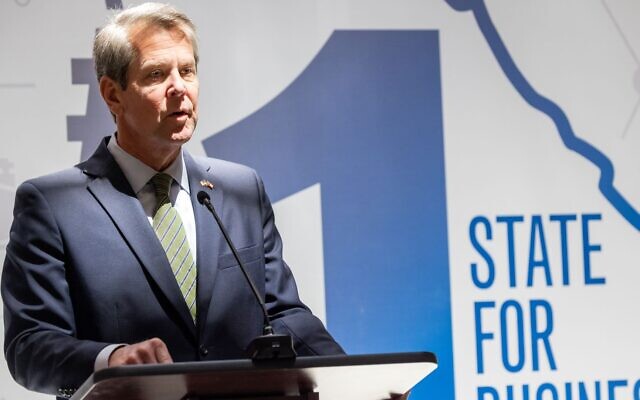
Soon after Kemp signed SB (Senate bill) 202 into law on March 25, Major League Baseball pulled its 2021 all-star game from Atlanta, moving the event to Colorado. At the time, MLB Commissioner Rob Manfred said, “Major League Baseball fundamentally supports voting rights for all Americans and opposes restrictions to the ballot box.”
On Tuesday, Kemp said, “Am I frustrated? Yes, I am. I am frustrated with some of these companies that have been outspoken.”
Two of those companies are Georgia based Coca-Cola Co. and Delta Airlines, which initially attempted to stay out of the public fray but since have been sharply critical of the revised election procedures. Boycott organizers said they are talking with other major Georgia companies, including Chick-fil-A, Southern Company, and AT&T, about the law.
Witnesses at the four-hour Senate Judiciary Committee hearing included Democratic Sen. Rev. Raphael Warnock, former state House Democratic leader Stacey Abrams, and Jan Jones, the Republican speaker pro tem of the Georgia House.
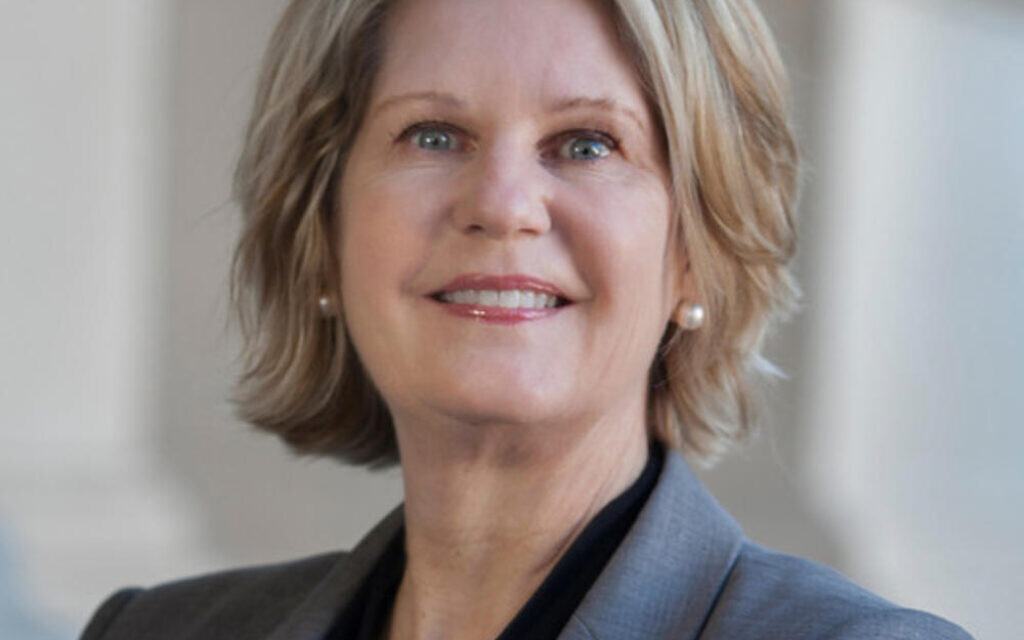
Jones told the committee that companies objecting to the election law “either did not read the bill or feel that they would be punished somehow by some of these enormous nonprofit organizations that would somehow punish them.”
Democratic committee member Jon Ossoff quoted Georgia’s Republican Lt. Gov. Geoff Duncan, who has called aspects of the new election law “solutions in search of a problem.”

One controversial provision limits ballot drop boxes to inside early voting locations and makes them available only during early voting hours. Kemp noted that drop boxes were allowed by an emergency order of the state election board in response to the COVID-19 pandemic.
Kemp also stressed that the state now has 17 days of early voting in total, 19 if counties include two optional Sundays with the mandated two Saturdays before general elections. Opponents, in turn, cite a reduction in early voting before runoffs.
A proposed end of no-excuse absentee voting eventually was removed from the legislation. The two optional days of Sunday voting before general elections remove a potential obstacle for observant Jews who wish to vote early, but who cannot during the Sabbath on Saturdays.
“There is ample time for people to vote in Georgia,” Kemp said.
- The Home Depot
- Governor Brian Kemp
- Dave Schechter
- Senate Judiciary Committee
- Atlanta
- Washington D.C.
- GEORGIA
- African American church
- Bernie Marcus
- Arthur Blank
- African Methodist Episcopal Church
- decatur
- Bishop Reginald T. Jackson
- Election law
- Protest
- Major League Baseball
- Coca-Cola Company
- Delta Airlines
- AT&T
- Chick-Fil-a
- Southern Company
- Stacey Abrams
- Jan Jones
- Rev. Raphael Warnock
- John Ossoff
- Lt. Gov. Geoff Duncan
- COVID-19



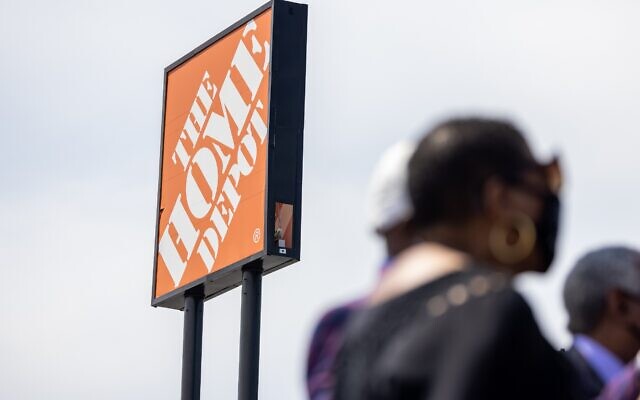
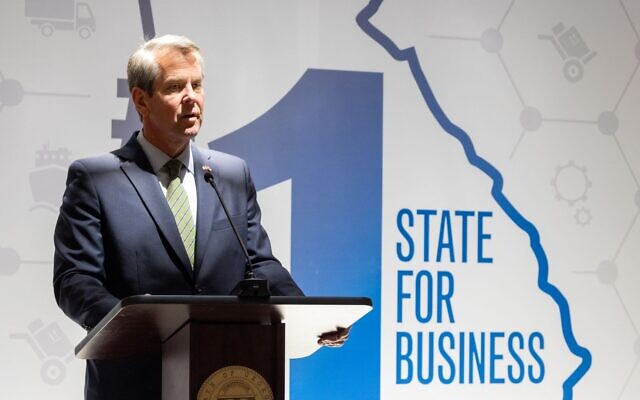
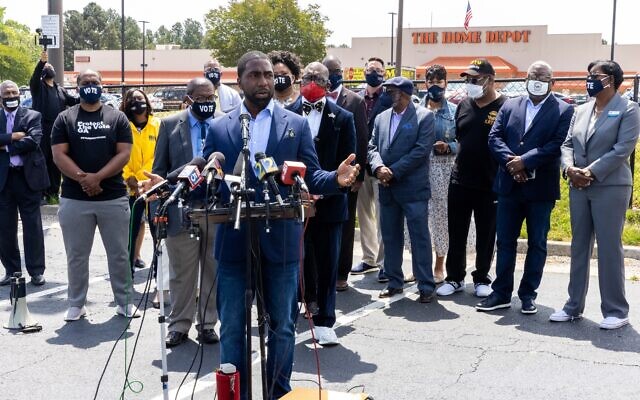
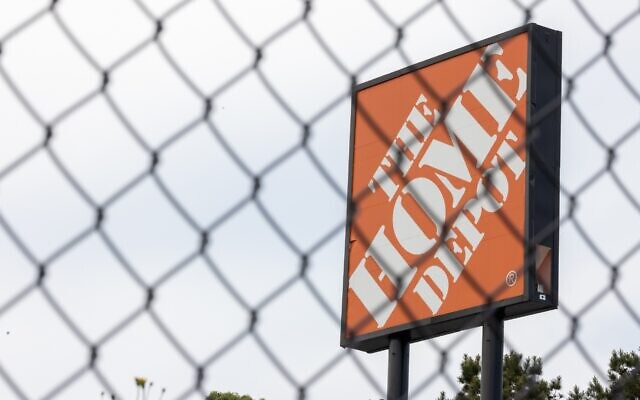
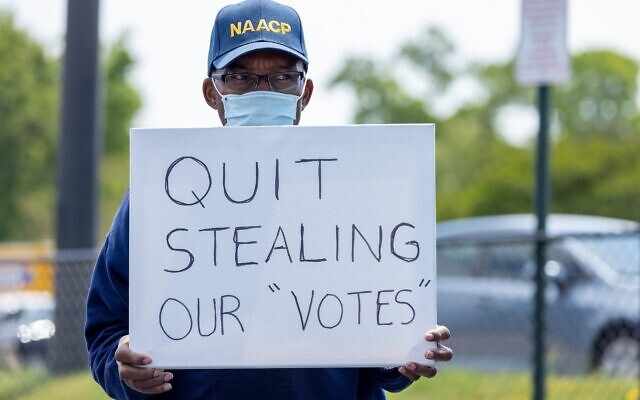

comments